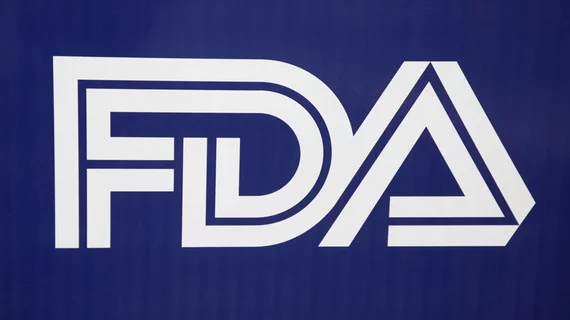FDA warns against using thermography for cancer screening, calls out California center
The FDA has issued a warning letter to a California-based imaging center for illegally marketing and distributing an unapproved thermography device as a sole screening modality for breast cancer and other diseases, according to a recent FDA news release published Feb. 25.
The letter was sent to Total Thermal Imaging Inc. of La Mesa, California and its president and co-owner, Linda Hayes. The document was accompanied by an FDA safety communication letter warning female patients that thermography is not cleared by the agency as an alternative to mammography screening.
“There is no valid scientific data to show that thermographic devices, when used on their own or with another diagnostic test, are an effective screening tool for any medical condition, including the early detection of breast cancer or other diseases and conditions,” the FDA wrote. “The agency stresses that mammography is the only screening method proven to reduce deaths from breast cancer through early detection.”
Thermography is a noninvasive imaging method that uses an infrared camera to produce images showing heat and blood flow patterns on or near the surface of the body. The tool, however, has been cleared by the FDA only as a supplement to primary diagnostic tests such as mammography.
The warning letter describes the FDA’s recent inspection of Total Thermal Imaging Inc., which found failure to establish procedures for taking corrective or preventive actions to address any defective products and failure to establish procedures for receiving and evaluating complaints, including a procedure for determining whether a complaint should be submitted to the FDA as a medical device report.
The letter also requests Total Thermal Imaging Inc. immediately stop distributing their “Thermography Business Package” and asks the firm to respond within 15 working days from the date the warning letter was received with details of how the violations noted in the warning letter will be corrected.
Any violations not corrected could lead to enforcement action such as seizure, injunction or civil money penalties, according to the FDA.
“Advancing and protecting women’s health is a priority for the FDA. As part of these efforts, we will not tolerate individuals or companies who attempt to take advantage of patients by marketing unapproved devices that deceive patients and put them at risk,” FDA Commissioner Scott Gottlieb, MD, said in a prepared statement.
The FDA has previously issued warnings about thermography to other companies and health centers in the U.S. dating back to June 2011 with its most recent issued in October 2017, until their Feb. 25 letter.
The agency affirmed that individuals who substitute thermography for mammography may miss the opportunity to detect cancer at its earliest and most treatable stages. Additionally, the safety communications letter provides recommendations for individuals getting breast cancer screening to be aware of thermography as well as recommendations for health care providers to educate patients about the limitations of thermography and discouraging its use to diagnose or screen for breast cancer.
Lastly, the FDA is asking healthcare providers to report any adverse events related to imaging with thermographic devices to its MedWatch Adverse Event Reporting Program using the MedWatch Voluntary Reporting Form.
“The FDA is closely monitoring adverse event reports associated with thermography and will take additional steps necessary to address the risks associated with use of these products,” the agency wrote in its safety communications statement. “We are committed to protecting and promoting access to safe and effective breast screening devices.”

